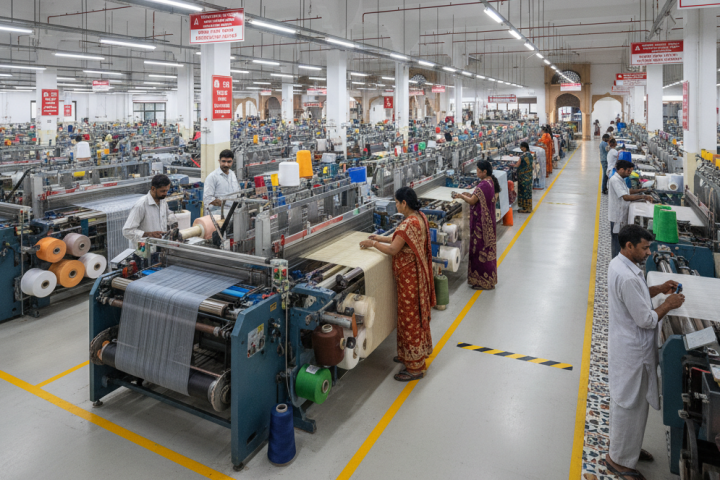Blog

Mumbai: The Ministry of Textiles has announced a series of amendments to the Production Linked Incentive (PLI) Scheme for textiles, aimed at making it easier for companies to invest and expand operations in India’s man-made fibre (MMF) and technical textiles sectors. The revisions, notified on October 09, 2025, are expected to lower entry barriers, reduce compliance burdens, and support job creation across the value chain.
Under the revised guidelines, companies will no longer be required to set up new entities to qualify for incentives. Instead, they can establish project units within existing firms. This move is likely to benefit mid-sized and established players who were previously deterred by the additional costs and administrative hurdles of creating new corporate structures.
The government has also halved the minimum investment thresholds for new applicants from August 01, 2025. For the Part-1 category, the requirement has been reduced from ₹300 crore to ₹150 crore, while for Part-2, it has been lowered from ₹100 crore to ₹50 crore. These changes are expected to attract a broader pool of investors, particularly from the micro, small and medium enterprises (MSME) segment, which has often cited high capital requirements as a barrier to entry.
In a further relaxation, the incremental turnover requirement for claiming incentives has been reduced from 25% to 10% from the second year of operations, starting FY 2025–26. This adjustment acknowledges the challenges faced by manufacturers in scaling up production rapidly and aligns the scheme more closely with ground realities.
The scope of eligible products has also been expanded. Eight new Harmonised System of Nomenclature (HSN) codes have been added for MMF apparel and nine for MMF fabrics. This expansion is intended to reflect evolving market demand and technological advancements in textile manufacturing.
The application window for the scheme has been extended until December 31, 2025, giving companies additional time to assess the revised terms and submit their proposals. Industry observers believe this extension, coupled with the relaxed norms, could lead to a fresh wave of investment in the sector.
The original PLI scheme for textiles, launched in 2021, was aimed at boosting domestic manufacturing and exports in high-value segments such as MMF and technical textiles. However, uptake had been slower than anticipated, with stakeholders citing stringent eligibility criteria and high investment thresholds as key concerns.
The MMF and technical textiles sectors are seen as critical to India’s ambitions of increasing its share in global textile trade. While India has traditionally been strong in cotton-based textiles, MMF accounts for a growing share of global demand. Technical textiles, used in sectors ranging from healthcare to infrastructure, are also gaining traction due to their specialised applications.
By easing the investment and operational requirements under the PLI scheme, the government hopes to unlock new capacity, attract technology partners, and generate employment in both urban and semi-urban areas. The focus on MMF and technical textiles is also aligned with broader policy goals, including import substitution and value addition in manufacturing.
(Write to us at editorial@bombaychamber.com)








